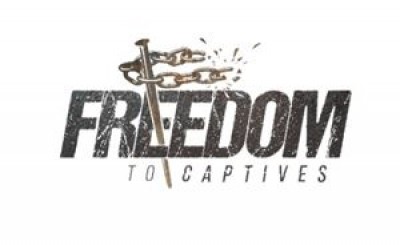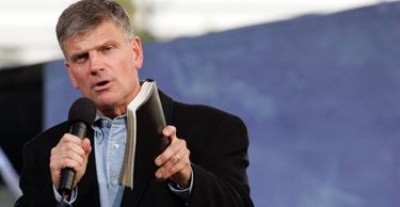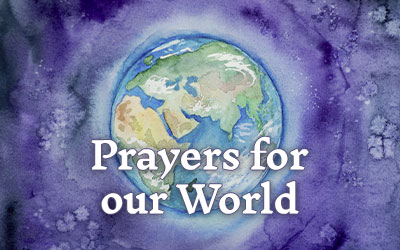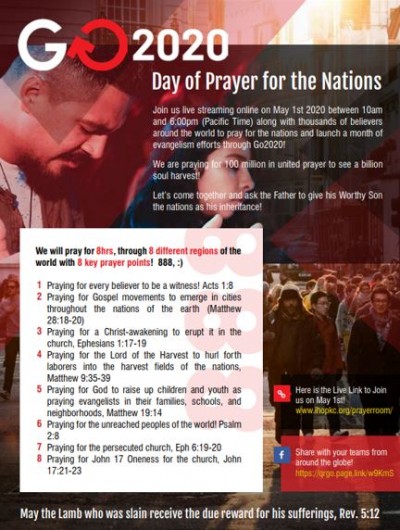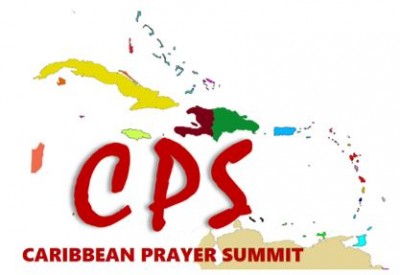A prayer letter from a family and team laboring in Iraq in such a time as this.
We are honored to reap what we and others have sown in this field. In recent weeks Muslims who have recently come to faith have joined our church community. Our team is actively spending time with these new believers to disciple them not only with the word but with our lives as well.
House Church Meetings and Teaching Seminars
In our house church gatherings we have increased our time of teaching the Word, praying, worshiping and waiting on the Lord together. We are currently studying the book of Acts. Every month we are also hosting all day seminars teaching the Scriptures to our church community who are believers saved from Islam. In these seminars we are using the three main aspects of what Paul unveiled in his letter to the church in Rome how he brought the Gentiles over to God.
‘Yet I dare not boast about anything except what Christ has done through me, bringing the Gentiles to God by my message and by the way I worked among them. They were convinced by the power of miraculous signs and wonders and by the power of God’s Spirit…’ Romans 15:18-19 (NLT).
From the three main aspects that Paul showed us, we are focusing our classes of teaching on
- the Message of the Gospel of the Kingdom;
- Character;
- Faith and the Miraculous.
Sharing the Gospel on the Streets with Muslim Background Believers (MBBs)
There are many challenges discipling new believers saved out of Islam in Iraq. Persecution from family, relatives, their tribe and at their work places is a normal occurring thing in Iraq.
However with the challenges comes joy, lasting fruit and Christ receives much glory. One of the joys of discipling “MBBs” is evangelizing Muslims on the streets of Iraq together with them. These new disciples become spiritually stronger when they share their testimony and the gospel to other Muslims. One of the ways fear is overcome, is by courageously sharing the gospel with the lost.
Cold Winter - Distribution of Kerosene to Syrian Refugees
Winters in Iraq are cold. The temperatures can dip down into the 20s. With the financial gifts that you gave we were able to distribute cans of kerosene, which they use to fuel their heaters, to 100 poor Syrian refugee families.
Prayer Gatherings in Iraq this year
The dates for the 50 Hours of Worship and Prayer are April 23-25 and the dates for the 100 hours of worship and prayer are October 27-31.
Quote of the month:
“Persecution does not take us away from our home. Persecution helps send us along the way to our true home.” Pastor JC
Praise Report
- In recent weeks more Muslims have come to faith and joined our church community.
- Disciples are being made, taught the Scriptures and going out on the streets to evangelize other Muslims.
- Prayer gatherings are planned for this year.
Prayer Requests
- The Holy Spirit’s power to find the men and women of peace and build the church in Iraq.
- Pray for the new believers saved out of Islam that Christ may be formed in them.
Thank you for your love for us and your prayers
In this feature article, Jason Mandryk from Operation World, also a member of the IPC’s Leadership Team unpacks a number of growing issues affecting the United Kingdom that have been highlighted by Franklin Graham’s planned evangelistic visit.
A number of secular UK venues have refused to host Graham’s events.
While the flooding and inexorable spread of CoVid into the U.K. hold the attention of most of us here, the reaction to the planned Franklin Graham tour should not go unnoticed. All of the original venues booked to host Graham’s preaching tour have cancelled, after numerous complaints of the American preacher’s alleged homophobia, Islamophobia, and right wing politics.
A Creeping Prejudice
We are seeing the accelerating trend of Christians being the ones against whom such discrimination is happening. Some have argued convincingly that the cancellations of venues on Franklin Graham’s crusade are examples of such discrimination, and of violations of religious freedom/free speech. Can there truly be free speech when a self-labeled ‘inclusive’ worldview bans people who have convictions different from their own? When we (in this case, Christianity in a nation with centuries of having a state-sponsored Church) are no longer the bully but the bullied, there is a powerful cognitive dissonance. This is happening, not just in the U.K., but across much of the English-speaking world.
Christians in the U.K. should be alarmed at the rapidity of this reversal, and indeed the willingness – eagerness even - of secular society to look the other way, or to pile on, when it’s Christians suffering discrimination. History has taught us, that when these things turn, they often turn fast.
Astute observers will also have noted that there has been a rapid tonal shift from the LGBTQ+ activists. Only a few years ago, such activist groups were pointing out cruel violence and persecution against a small minority, and asking to be allowed to simply exist, to be left alone, to be accepted for who they were. Today, entities like Stonewall and PinkNews are on the offensive. They demonstrate no mercy to those who do not agree to their manifestos. Savvy manipulation of our media and of outrage/victim culture, the weaponization of vocabulary and of Karl Popper’s “Intolerance Paradox” are just some of the tools of the trade.
How, then, do we respond? Well, tens of millions of Christians who have lived in countries with fundamentalist Muslim, Hindu or atheistic governments are deeply familiar with the experience of persecution and of suffering at the hands of an intolerant majority. Some have endured for generations, or even centuries, in these contexts. It may be that in the years to come we will have much to learn from these brave sisters and brothers in Christ. It may be that our recourse to lobby groups, legal actions, and culture wars will be exposed as fruitless. It is likely that our most important lesson will be to learn how to turn the other cheek, and how to love our enemies and pray for those who persecute us (Matt 5:44). Jesus did promise his disciples, “you will be hated by all nations for my name’s sake” (Matt 24:9).
However, the disruption to Franklin Graham’s intended crusade cannot be laid entirely at the feet of those who oppose his visit.
Franklin Graham is not his father
There are two important aspects to Franklin Graham’s approach that are worth noting. Firstly, how the two men made their choices about where and when to do preaching tours differs. Church of England ministers Ian Paul and Paul Eddy write about how Billy Graham “would only go preach in cities after considerable prayer, and after invitations from a wide spectrum of churches in those cities.” An admirable, spiritual, consultative process! The article goes on to explain that the Billy Graham Evangelistic Association (BGEA) no longer operate that way. It appears that Franklin Graham’s decision to come to the U.K. was a private decision between him and God, rather than a relational process involving the U.K. church. The lack of an outcry about the cancellations by the U.K. church is hardly a surprise, then.
Public politics is another issue where the two Grahams significantly differ. One of the hallmarks of Billy Graham’s preaching is that he focused on the gospel. Billy learned to avoid most politics and kept the main thing, the main thing (after well-publicized and painful lessons through his relationship with Richard Nixon). It is a part of why he had the respect of and access to so many communities and leaders around the world. Who else could have had the chance to share his faith personally with everyone from Queen Elizabeth to Johnny Cash to Martin Luther King Jr. to Kim Il Sung to the King of Jordan?
Politics and religion
Regardless of whether you agree with his convictions or not (and he makes no bones about hiding them), it is undeniable that Franklin Graham has very deliberately chosen to mix his politics with his faith. This politicization of religion is controversial enough in America; it sits less well in a Europe that suffered through some incredibly destructive religious wars before the USA even existed. In addition to his right wing politics, Franklin Graham has also been outspoken on his views about LGBTQ+ and on Islam – two already charged issues.
Franklin Graham is certainly entitled to air his views, and the truth is that many faithful Christians in Europe will actually agree with most of them. Yet there needs to be a recognition that the European context, and specifically the U.K. context, requires its own approach for evangelists, especially for high profile ones. One size never fits all when it comes to spreading the good news of Jesus cross-culturally. This is lesson number one for all aspiring missionaries! You wouldn’t try to evangelize a Muslim while eating a pork sausage and drinking a beer, after all. Europe is profoundly different from America, and our evangelism must reflect that. Remember, this is a Europe that has endured centuries of deep antipathy between religious powers, the spiritual baggage of state churches, and the trauma of state-sponsored atheism.
Franklin promised to focus on the gospel in his evangelistic endeavours in the U.K., and I have confidence that he would keep his word if he gave it. He is a gifted evangelist when he preaches the good news. However, the unfortunate truth is that Graham’s evangelistic platform – in Europe, at least – will never be free from the impact of his very public politics. It appears that influential groups in the U.K. are intent on letting Franklin Graham know that they consider him a homophobic, Islamophobic, right wing, Trump-idolizing crackpot and if that’s the Jesus he offers, then thanks-but-no-thanks.
Europe - white unto harvest?
Yet, the U.K.’s reticence to welcome Franklin Graham’s own crusade should not be associated with a rejection of the gospel of Jesus Christ. True, the fires of religious fervour burn most weakly in Europe among all continents. However, for a number of years, missionaries, ministers, and youth workers in “the prodigal continent” have been saying that there has been more openness to the person of Jesus and the work of the Holy Spirit – especially among the younger generation – than there has been in a long time. This is not even including the many on-fire migrant churches from Africa, Latin America, and Asia, nor the spiritually hungry and desperate migrant populations from places like Afghanistan and Iran (oddly enough, all the above are the groups most likely to resonate with Franklin Graham’s particular blend of religion and politics!) In many places in Europe, the spiritual harvest is ripe. Many who live on this continent will question, though, whether an American mass evangelist with conspicuously right wing politics is going to be the most effective worker in that harvest field.
Franklin Graham has stated that he intends to come to the U.K. anyway. I am glad that my brother in Christ is not cowed into cancelling his campaign simply due to the cancellation of public venues. We can all hope that his visit brings much spiritual fruit, even if the venues are churches instead.
How can we pray?
Pray that U.K. Christians would become aware of the accelerating secularization happening in their midst – not to engage in fruitless culture wars, but to redouble their efforts to fearlessly share the good news of Jesus, no matter the consequences.
Pray that the schemes of the enemy to attack the body of Christ and to degrade British society would be exposed. The devil prefers to fight dirty. May the people of Jesus wage war in the spirit of Jesus, who sent His disciples out “as lambs among wolves”.
Pray for great wisdom, discernment, and humility for public Christian figures in the U.K. This includes people like Anglican Archbishop Justin Welby, Evangelical Alliance CEO Gavin Calver, British evangelist J. John, and even visitors like Franklin Graham.
Pray, as always, for a spiritual awakening in this nation with a history of spiritual awakenings. The U.K. needs revival on the scale of the Wesleyan or Welsh revivals. May the Holy Spirit pour Himself out on His people once again!
Join the discussion at www.ipcprayer.org
The locusts are swiftly breeding and their numbers could increase 400-fold by June if the infestation is left unchecked, the UN has warned.
Countries in East Africa are racing against time to prevent new swarms of locusts wreaking havoc with crops and livelihoods after the worst infestation in generations.
A lack of expertise in controlling the pests is not their only problem: Kenya temporarily ran out of pesticides, Ethiopia needs more planes and Somalia and Yemen, torn by civil war, can't guarantee exterminators' safety.
Locust swarms have been recorded in the region since biblical times, but unusual weather patterns exacerbated by climate change have created ideal conditions for insect numbers to surge, scientists say.
Warmer seas are creating more rain, wakening dormant eggs, and cyclones that disperse the swarms are getting stronger and more frequent.
In Ethiopia the locusts have reached the fertile Rift Valley farmland and stripped grazing grounds in Kenya and Somalia. Swarms can travel up to 150 km (93 miles) a day and contain between 40-80 million locusts per square kilometre.
If left unchecked, the number of locusts in East Africa could explode 400-fold by June. That would devastate harvests in a region with more than 19 million hungry people, the U.N. Food and Agriculture Organization (FAO) has warned.
Uganda has deployed the military. Kenya has trained hundreds of youth cadets to spray. Lacking pesticides, some security forces in Somalia have shot anti-aircraft guns at swarms darkening the skies.
Everyone is racing the rains expected in March: the next generation of larvae is already wriggling from the ground, just as farmers plant their seeds.
"The second wave is coming," said Cyril Ferrand, FAO's head of resilience for Eastern Africa. "As crops are planted, locusts will eat everything."
The impact so far on agriculture, which generates about a third of East Africa's economic output, is unknown, but FAO is using satellite images to assess the damage, he said.
PESTICIDE SHORTAGES
This month, Kenya ran out of pesticide for about a week and a half, he said. Farmers watched helplessly as their families' crops were devoured. In Ethiopia, the government can only afford to rent four planes for aerial spraying, but it needs at least twice that number to contain the outbreak before harvesting begins in March, Zebdewos Salato, director of plant protection at the Ministry of Agriculture, told Reuters. "We are running out of time," he said.
Meanwhile, locusts - which have a life cycle of three months - are breeding. FAO says each generation is an average of 20 times more numerous. When eggs hatch, as they are doing now in northern Kenya, the hungry young locusts are earthbound for two weeks and more vulnerable to spraying than when they grow wings.
After that, they take to the air in swarms so dense they have forced aircraft to divert. A single square kilometre swarm can eat as much food in a day as 35,000 people. FAO said containing the plague will cost at least $138 million. So far, donors have pledged $52 million. Failure means more hunger in a region already battered by conflict and climate shocks.
Since 2016, there have been droughts in Kenya, Somalia, Ethiopia, then floods, Ferrand said. In South Sudan, more than half the population already faces food shortages.
By Omar Mohammed and Dawit Endeshaw
More at: https://news.trust.org/item/20200227122340-3t5r8
Pray: that sufficient resources, pesticides and planes will be made available to tackle this problem before it escalates or spreads further.
Pray: for a divine intervention that will stop the breeding and spread of these swarms in their tracks.
Pray: into this prophetic word from David Sseppuuya that these nations will seek repentance that will lead to restoration.
Pray: for the Church to rise up in these countries and to take a spiritual lead. (Joel 2:15-17)
An Invitation to Transforming our World through United Prayer and Mission!
The early church turned the world upside down when, following Jesus’ command, they stayed in Jerusalem and “joined constantly together in prayer”. This culture of united prayer enabled the believers to receive the empowering of the Holy Spirit and ignited remarkable spiritual breakthroughs as the Gospel began to spread throughout their world. This same pattern of prayer preceding evangelism has been a consistent pattern in all the great revivals and mission advances from then on through church history.
Now, tens of thousands of churches with hundreds of mission organizations and prayer movements are joining forces for an epic prayer and mission initiative unlike anything our world has known. The goal is to reach one billion who are still unreached by Christ’s Good News. Together, by May 2020, we aim to mobilize 100 million Christians to pray for those in their communities that do not know the Lord as well as those across the seas that are part of unreached people groups. No one organization or movement can accomplish such a staggering feat, but if we flow together like tributaries in one unstoppable river, this can be achieved! Getting God’s heart of love for the lost through prayer will lead to our sharing Jesus with them in the power and sensitivity of the Holy Spirit just as the early church experienced.
Would you please consider joining with us in such an awesome undertaking for His glory and so that everyone may hear? Together, as we pray, mobilize, and trust the One who has all power, we can see the following happen by the end of May 2020:
- One billion people being reached with the Gospel and millions upon millions getting saved all over the world through May 2020.
- Unreached people groups hearing the Gospel for the first time and planting new churches among them.
- 100 million Christians inspired and empowered by the Holy Spirit to pray and share the Gospel with as many as possible in their own communities and to the ends of the earth.
- 50 million new believers integrated into existing and new churches.
Action steps:
- Personal Prayer: Lord here I am, use me! I will pray for and share the Gospel with others who need to hear it. https://www.go2020.world/get-involved
- A suggested five-fold strategy to mobilize believers for prayer and outreach is described in this four-minute video. GO2020 video: https://vimeo.com/342384375
- The brochures can also be used to give others the vision of Go 2020 (some translations and more resources are available at www.go2020.world/prayer
- All through 2020, a series of 40-day prayer guides will help us pray daily for those still unreached and for the harvest to be brought in. The March / April theme is LABORERS for the HARVEST:
Download the GO2020 Global Daily Prayer Guides HERE www.ipcprayer.org/go2020 - Do join us and hundreds of thousands of believers around the world for an online global Prayer Meeting on 1st May 2020 between 10am and 6pm Pacific Time!
Prayer Room Link: www.ihopkc.org/prayerroom/
Download the flyer: http://ipcprayer.org/images/GO2020%20Flyer%20Web.pdf
More info and sign up HERE www.go2020.world
John Robb, Chairman, International Prayer Council
& Go 2020 Prayer Mobilization Task Force
Prayer Summit 2020
Global Prayer for Northeast Asia
Dear Delegates,
It is with much deliberation and prayerful consideration that the Prayer Summit Organizing Team would
like to announce the CANCELLATION AND POSTPONEMENT of the Prayer Summit 2020 from April 7-9 in
Seoul, Korea.
This comes in view of the COVID-19 outbreak, and the South Korean government has raised the alert to
Level 4, or "serious," advising deep caution and restriction in travels within and out of the country.
The delegates' and volunteers' well-being and safety are of utmost importance as well as being in tune
with how the Lord is steering us. The leaders and organizers convened over the span of a few days to
deliberate and pray, and we felt this was the best call to make at this point.
In light of this cancellation, the Prayer Summit Committee will give a FULL REFUND to all who have
signed up and paid for the conference fee. We sincerely apologize for the inconvenience and disappointment caused, and thank you for your gracious understanding.
We will soon post the updated dates for the Prayer Summit 2020.
Please contact us at This email address is being protected from spambots. You need JavaScript enabled to view it. should you have any further inquiries.
In this challenging time, we request for your prayers. We believe that the Lord has much good planned in this situation.
For His Kingdom,
Sarah Lee
Prayer Summit 2020 Organizer
Christian Council of Korea, Co-Chair
Website: www.prayersummit2020.com
Contact: This email address is being protected from spambots. You need JavaScript enabled to view it.
Greetings from the secretariat of the Caribbean Prayer Summit. We are excited about hosting the 4th Caribbean Prayer Summit (CPS) on May 21-24, 2020 at the all-inclusive Hilton Rose Hall Hotel, Montego Bay under the theme “A United Caribbean Church …a Regional Revival”.
Since its inception the CPS has been convened in Barbados (2007), Suriname (2008) and Jamaica 2009. The CPS was initiated by the International Prayer Council through Rev Maria Harbajan, their Caribbean Coordinator and Representative.
We believe that intercessory prayer changes things and in light of the myriad of issues facing the region at this time, including the challenges facing CARICOM, the CPS aims to target Intercessory Prayer leaders throughout the region and beyond with the following objectives:-
- To provide a forum for the networking of Intercessory Prayer leaders across the Caribbean – no island is to stand alone in its spiritual war
- Strategic planning for the setting up of National Prayer Networks on islands where there might not be any in place – every island needs one
- To have the island representatives present the most critical needs of their nation and have the regional gathering uphold them/their nation in corporate intercession and spiritual warfare – together we will win the war
- Development of links, networks, and initiatives in the region; exposing what already exists – exposing opportunities available for training; impartation.
- To encourage the Caribbean youth and children to become more involved in intercession – raising up Millennials to be powerful and effective in prayer.
- To introduce the concept of a day of National Repentance to be presented to Governments and assist in having it executed in all the islands of the region.
We would be happy to have you join us for this historic occasion. Please view this as our invitation to you and/or at least one other Intercessor who could represent your nation at the Summit. We also invite you to consider staying at the Summit venue in order to facilitate fellowship over meals, continuous interaction and networking with fellow delegates from across the region.
Regular Registration (Adult) US$99.00
To register you may visit our website at www.caribbeanprayersummit.org or contact the Secretariat by email at This email address is being protected from spambots. You need JavaScript enabled to view it.
Alternatively, you may call (876) 398-2299 between the hours of 10:00 am and 3:00 pm. Also, we will be creating a WhatsApp group for the flow of continuous information to all our delegates and to facilitate questions and answers (Q & A) that will benefit all who will be in attendance. Please let us know if you do not wish to be added to such a group.
Sharon Hermitt/Secretary (for)
Rev. Maria Harbajan
CPS Convener/Member, CPS Secretariat
Member, International Prayer Council
www.caribbeanprayersummit.org
History belongs to those who connect with God and one another in prayer!
If you are a prayer leader or intercessor with a heart for America, please join us at the 2020 National Prayer Assembly to seek the face of the Lord and be His history-changers!
View our video invitation HERE!
https://www.youtube.com/watch?v=oNxN8Of7Rw8&feature=youtu.be
Register Now!
http://events.r20.constantcontact.com/register/regform?llr=xhwszpbab&oeidk=a07egq16hr746cc94db
National Prayer Assembly schedule and accommodations:
Wednesday, October 14 - 9 am to 9 pm (fasting is encouraged if you are able to do so; otherwise there are restaurants available nearby). Beverages will be served throughout the day. Please arrive by 8:45 am so we can start promptly.
Thursday, October 15 - 9 am to 5 pm (a deli lunch will be served along with beverages available throughout the day). Your beverages and lunch are included in your registration fee.
If you need a hotel during your stay, you can find the best deals on Trivago.com or Booking.com. Please make your own accommodation arrangements. There are several reasonably priced hotels within a few blocks walk to the National Housing Center.
The NPA is an alliance of prayer networks and ministries that enables us to flow together as One Body for the revival and transformation of America.
Lift up your hands in the sanctuary and praise the Lord. (Ps 134:2)
Let's come together to praise our mighty King and lift up His name for our nation.
It takes place here:
National Housing Center
1201 15th St NW
Washington, DC 20005
Tracey de Blank
INTERCESSORS FOR AMERICA
800-872-7729
This email address is being protected from spambots. You need JavaScript enabled to view it.
More: http://events.r20.constantcontact.com/register/event?oeidk=a07egq16hr746cc94db&llr=xhwszpbab&showPage=true
The Lord is gathering His people on the European Continent, and the whole body of Christ from other parts of the world stands with this European Gathering, for we know that the Lord will uncover the old wells on this continent and new streams of grace will again flow from Europe to the world.
In the last years Rise-Up Now has run several conferences in different European cities with the vision to see national European believers and immigrant believers from different parts of the world living in Europe work together to proclaim God's ownership of each European land they live in through prayer, networking, and proclaiming the good news to all.
His bride from every tribe, people, and nation exclaims to HIM, "You are worthy." This bride from many nations will come together in Brussels from June 11th to 13th to worship Him and proclaim His dominion over Europe.
Video invitations:
Dr. Khaled Leon
https://youtu.be/rAy302eg-js
Fadi Krikor
https://youtu.be/WPPR0AGpmpE
Pastor Yassir Eric
https://youtu.be/I1m_MRjwvtg
The Lord gathers his people from Europe and the whole body of Christ from other parts of the world to become one with the European assembly because we know that the Lord will open the old wells on this continent Europe and new streams of grace from Europe again will flow all over the world.
In recent years, Rise-Up Now has held several conferences in different European cities with the vision of seeing European siblings working together with foreign siblings who come from different parts of the world and now live in Europe To proclaim God's rule over every European country they live in through prayer and cooperation in spreading the gospel.
His bride from every tribe, people and nation calls to him: "You are worthy." This bride from many nations will meet in Brussels from June 11th to 13th to worship him and proclaim his rule over Europe.
To Register Click Here:
